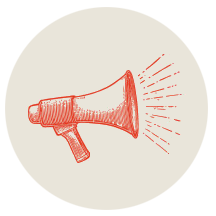Rule #1 – It’s not about you
1. It’s not about you.
2. Sometimes it is about you.
3. It’s always about them.
Rule 1 reads:
This is the most important thing to remember. At the core, feminism must begin and end with a conversation about women’s rights. Yes, our patriarchal system causes lots of problems for men, but when people are discussing patriarchy and its discontents, don’t make it about you. You win no points for derailing a conversation about the oppression of women to how men have it bad, too.
Which brings me to this lovely, if irate, blog post from Helen Horton, a feminist from York.
Hi all you male feminists and allies out there. I am writing this to you because I have seen and heard in national newspapers and on twitter, and from friends and colleagues that you are getting very upset because feminism keeps pointing out all the nasty things that your gender is doing, and that your gender lets happen.
You sorrowfully concede that the patriarchy exists and that lots of men do bad things, and that we need to combat this. BUT, you are also very eager to point out that you are not like this. That it’s ‘only a few men’ who are overtly slavering sexist pigs and that most men mean well and don’t think women are pieces of meat and that feminists should be burned at the stake or be barefoot in the kitchen. You take any criticism of your gender or the patriarchy as a personal affront and direct the conversation back to you and your feelings. You are hurt by the fact that your feminist friends keep saying that men are nasty and sexist, and that they keep bringing up sexist things that men do and the attitudes that male-lead patriarchy instills in society.
However, what you are doing is patriarchal and detrimental to feminism. Instead of letting the women talk about the issues they have with our patriarchal society, and lifting their voices up and doing something positive to combat this, as someone with the privilege to do something and change the opinions of your fellow men, you decide to make everything about you and your hurt feelings.
She’s right. When women or men confront patriarchy, that’s not the time to talk about your feelings, or to make sure that you are exempted from the conversation. It’s a good time to be quiet, supportive, and then if possible amplify the female voices through whatever means you can (that’s rule #3).
Which is what I’m doing here, or trying to anyway. Amplifying.
And now that I know Helen’s blog, I think this is particularly good from her: “I’m a bad feminist.”
Anyway, we are all in a tizzy about Paris Lee’s recent piece for VICE. A prominent feminist is saying that she doesn’t mind being catcalled and asking if that makes her a bad feminist.
I think that we firstly need to stop this discourse altogether. We live in a fucked up society where most of the media, discourse and activities we engage in and with contain things that are problematic. As I speak I am listening to A$AP Rocky who is currently rapping about ‘bitches’, I’ve heard a rape joke today and not called it out due to fatigue and I’ve also had a temper tantrum because I snapped my eyeliner in two.
Does listening to music with a misogynistic message make me a bad feminist? Does not calling out problematic bull from peers whenever I hear it make me a bad feminist? Does making problematic jokes myself make me a bad feminist? Does the way I present myself to fit in better with patriarchal norms by wearing makeup or worrying about gaining weight make me a bad feminist?
These questions are all legit and do cause us feminists a lot of grief sometimes. Like, we get so tired that we forget to question everything we do. We buy into our shitty society because it is easier and do we really want to suck all the fun out of our life because it could be buying into the capitalist patriarchy? It’s so mentally tiring to try to ‘be a good feminist’ all the time that it seems easier to just give up and put on Snoop Dogg and have a rest, or to laugh along with your friends when they joke about feminist issues. And that is fine.
We are human.
I like this. The gender norms of quite a few of my songs, including some I’ve written, are not always optimal. I tend to write grim songs about people in bad states. I like a lot of country music. There’s a song by Hal Ketchum, “Past the Point of Rescue,” which I like and cover. He says, “Never meant to push or shove you // Don’t you know how much I love you.” This is abuser talk! I like the song. It’s not pro-abuse (which is the line I draw and why I actually object to so much of misogynistic music – when it glamorizes misogyny).
But hey, if that’s Helen’s thing and it works for her, good. We don’t have to be perfect all the time. We just need to be as intentional as possible in forming our relationships and conducting ourselves in the world, not letting patriarchal defaults reflexively shape our interactions and our discourse.
And now I have a new blog to read, so it’s a good day.
